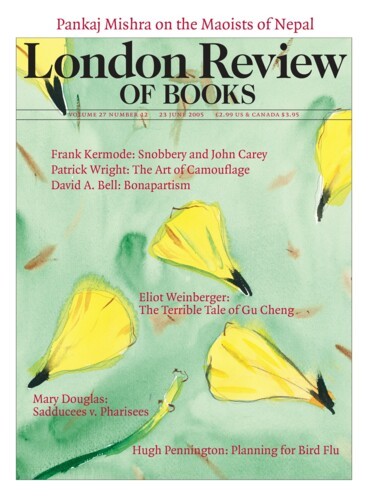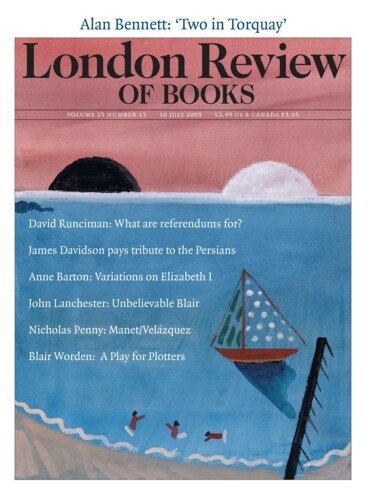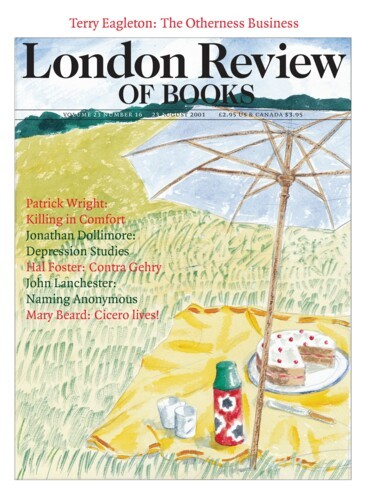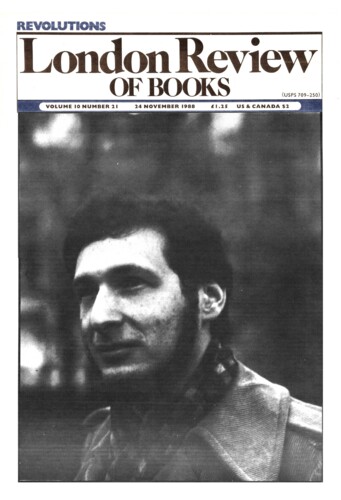Cubist Slugs: The Art of Camouflage
Patrick Wright, 23 June 2005
Six years in the making, Blechman’s Encyclopedia is itself a camouflaged object. At first glance, it looks as if it comes straight out of a military glove compartment. Indeed, it could be a military glove compartment. The two volumes are contained in a large, shadow-casting khaki box, covered with black stencilled numbers that suggest ordnance but turn out to be nothing more explosive than the ISBN. Both are covered in disruptive pattern material, but the larger one, which contains the main analysis of camouflage as it travels from ‘nature’ to ‘military’ and then ‘culture’, is banded in bright orange. This reflects Blechman’s design strategy of ‘negating the practicality of camouflage by combining it with high-visibility fabrics’. The choice of orange may also be connected to his interest in Eastern spiritual traditions, and perhaps even to the way in which the sales and press person at Maharishi, identified only as ‘Suzie’, signs off her emails with the word ‘peace’.





